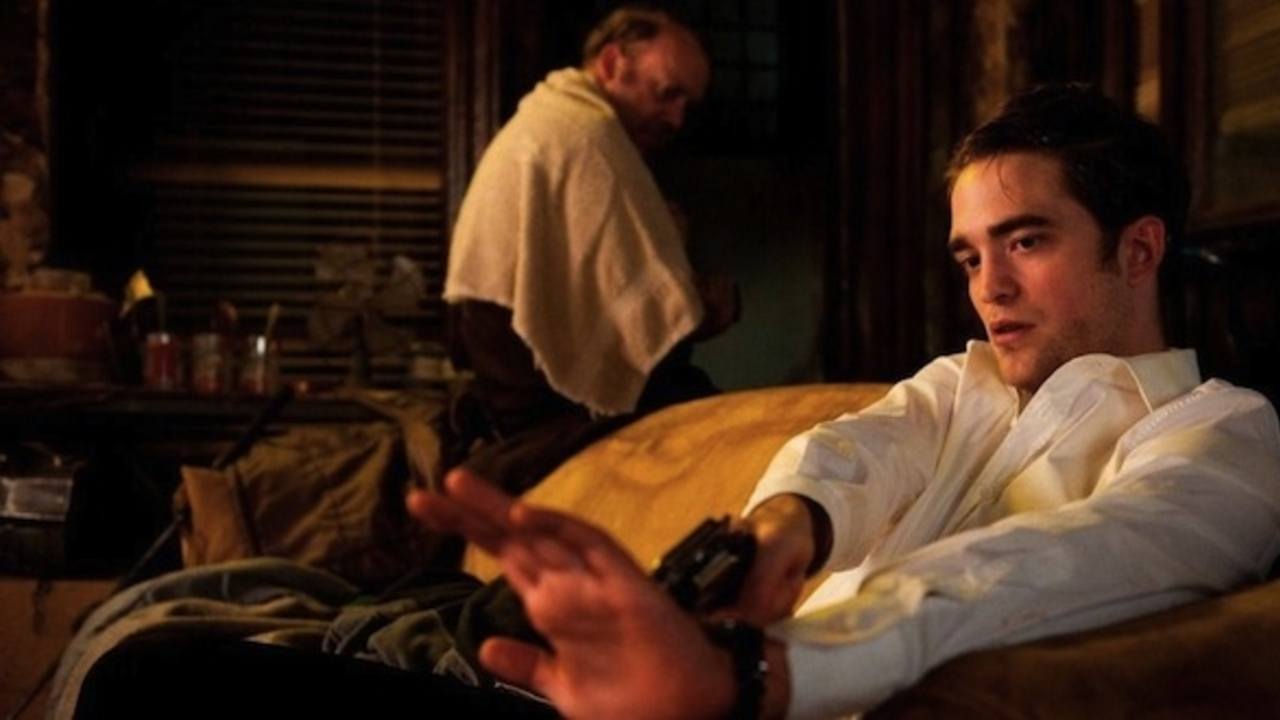“All this optimism, all this booming and soaring… Things happen like (snap) bang, this and that, simultaneous. I put out my hand, and what do I feel?” Jay Baruchel delivers these lines at the beginning of Cosmopolis, and it prepares the viewer for what will follow.
Actors trying desperately to make Don DeLillo’s distinct, odd dialogue, almost all taken directly from the source novel, sound like it is coming from human beings. Each actor deals with it in their own way.
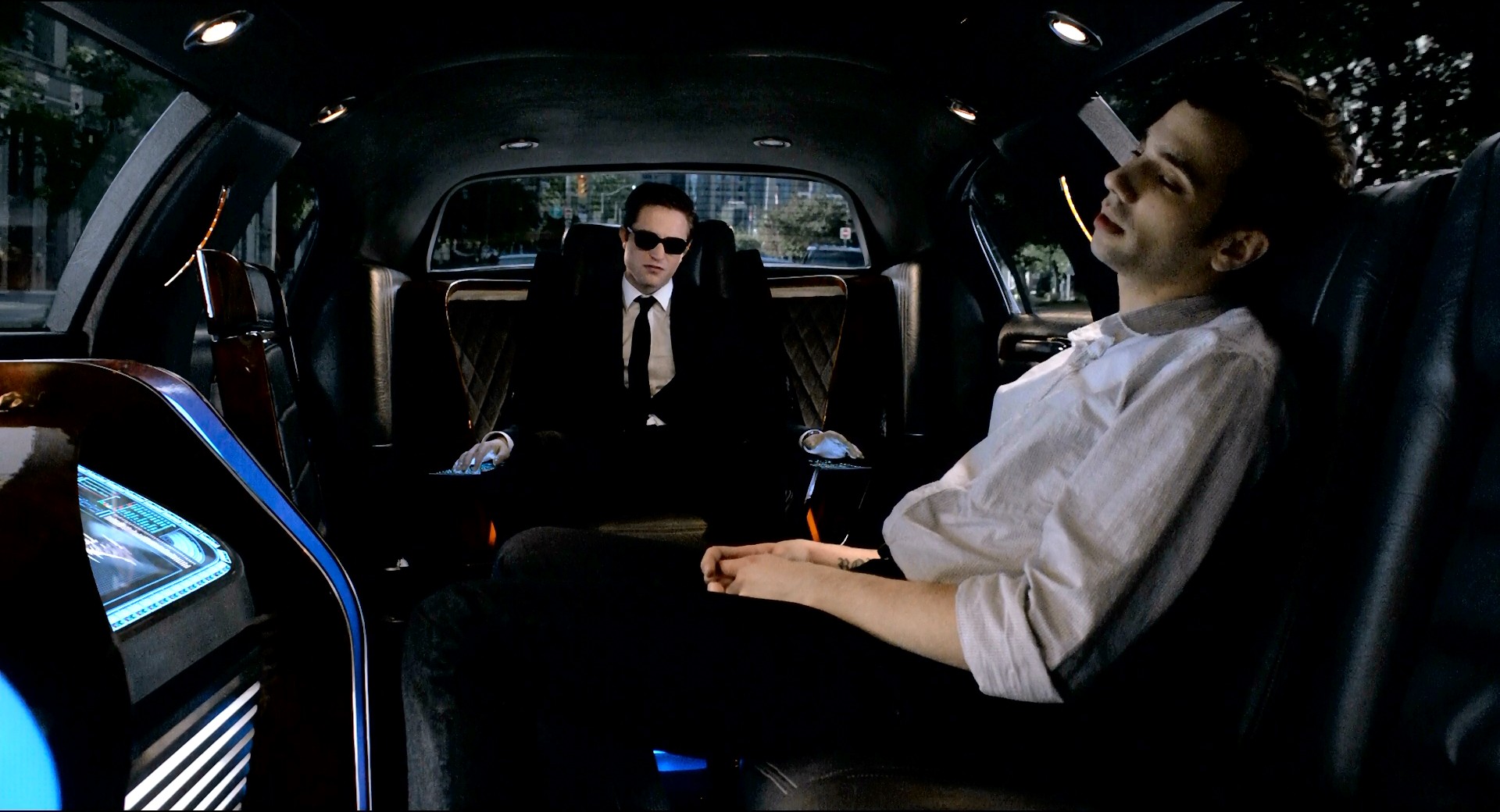
Baruchel, in his brief appearance as Robert Pattinson’s head of cyber security, delivers it in the up-all-night-on-Adderall feel of so many tech wizards; Kevin Durand, his bodyguard, delivers it in a world-weary tone that suggests he’s picked up the style from his boss in a show of deference; Sarah Gadon, his wife, delivers it with a perfect crystalline affect that makes her seem completely alien.
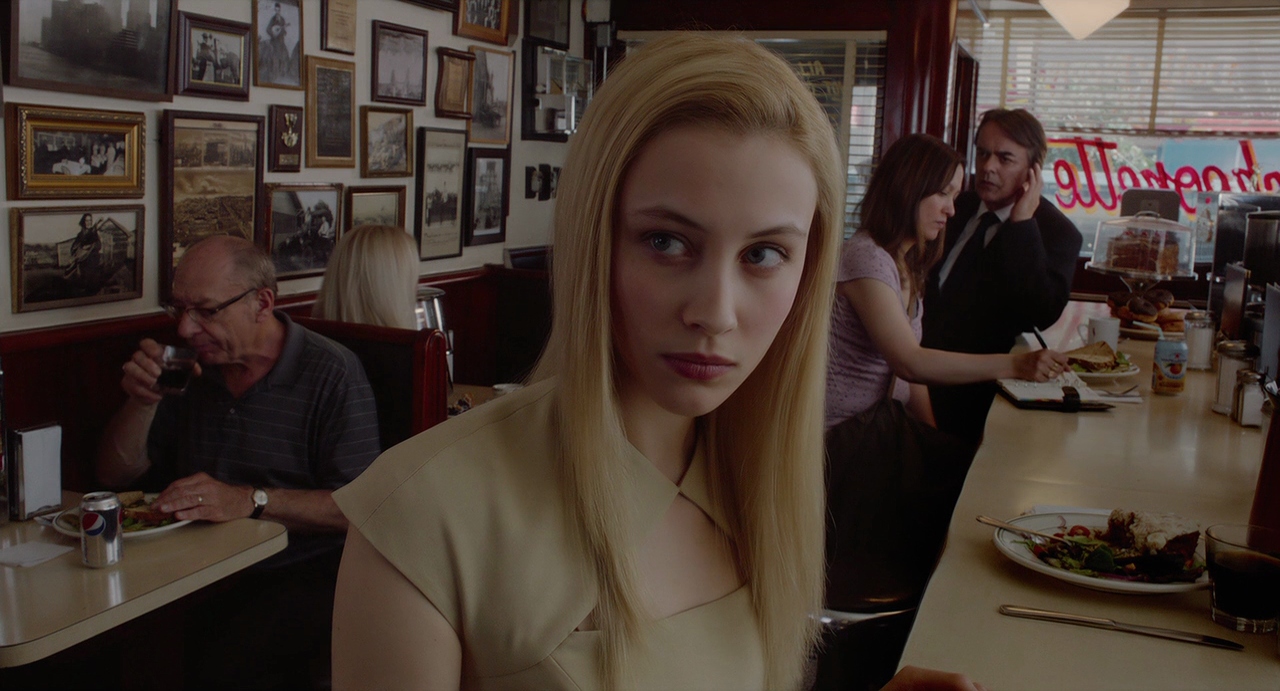
Pattinson himself, though, is the most curious adopter of them all in Cosmopolis. As the currency speculator protagonist, winding his way through Manhattan in his limo in search of a haircut, he perpetually seems too young for the lines, like he has stepped into his father’s suit.
It’s somewhat hard to buy his playboy performance as he sleeps with roughly half the women he meets, and certain lines about sexuality—“I’m a world citizen with a New York set of balls” particularly falls hilariously flat—seem to be borrowed from another film. His voice has no resonance, and is somewhat higher than expected. In short, he perpetually seems like he is wearing his father’s suit.
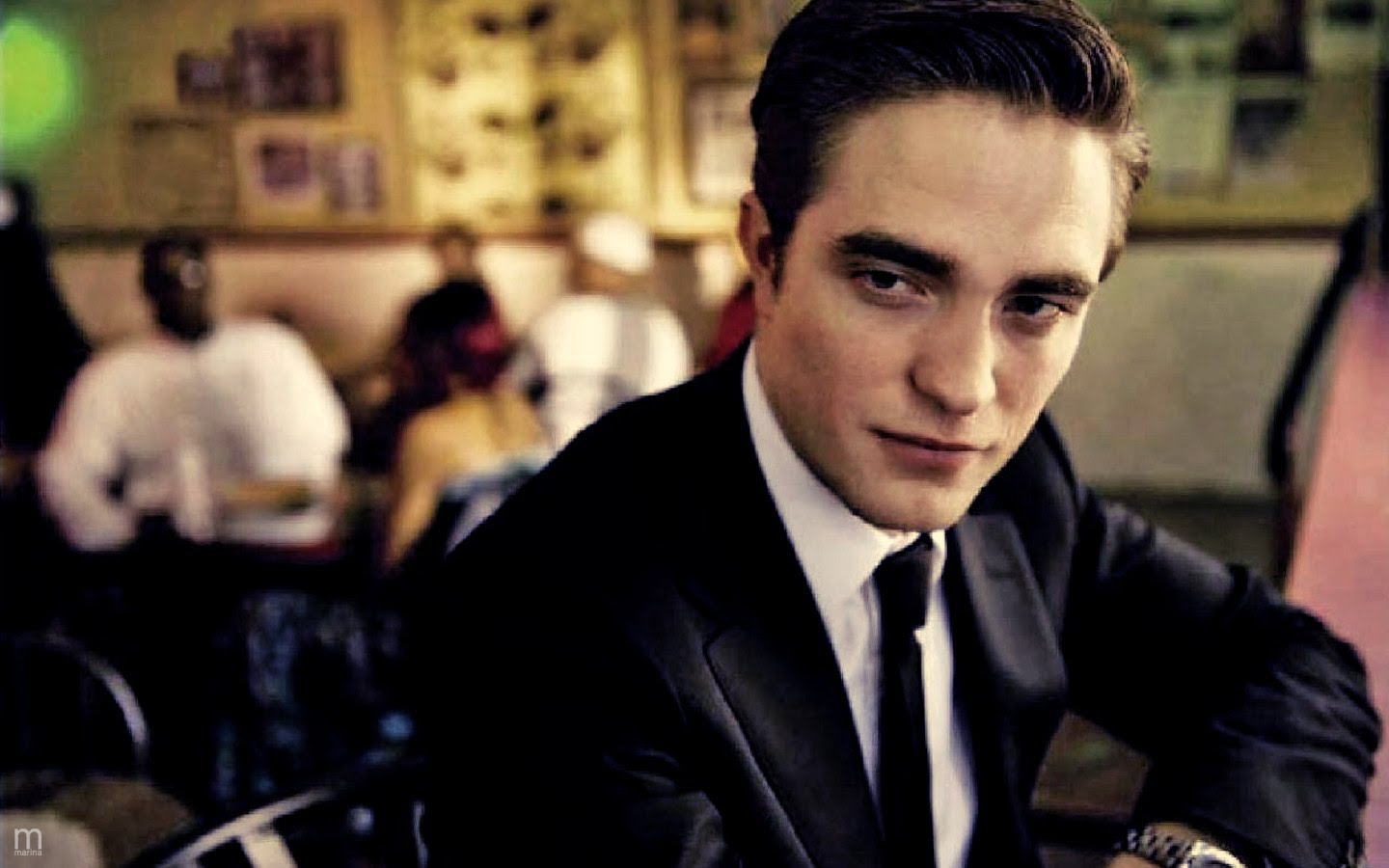
It is a particularly strange choice of a protagonist — first for a novel and then for a film, for two creators who are well into their dotage.
But perhaps it is not particularly accurate to think of either as at the end of their careers in anything but the most literal sense. Both changed profoundly in 2001 in a way that reveals how 9/11 designates not just the event itself, but an entire shift in the world that was reflected in the art of the time.
DeLillo turned from increasingly lengthy historical work (culminating in the massive Underworld) to slim elliptical novellas with The Body Artist, and Cronenberg’s surreal horrific worlds became subjectivized in Spider, his first film with a relatively realistic objective world. Their careers since these shifts have been more scattered and diffuse, less obvious about their messages, more wandering and exilic.
Perhaps it is because art is no longer the only art. DeLillo was always fascinated with terrorists of one kind or another, from the Maoists of Mao II to the cult of The Names.
He always served as a narrative voice to give context, or deny context, to his fictive terrorists; now, suddenly, he found himself in a place where terrorists give their own declarations of meaning directly to camera, streamed to news desks worldwide. Cronenberg was fascinated by the extension and manipulation of the human form, but when this ceased to be the exclusive field of the artist he lost interest.
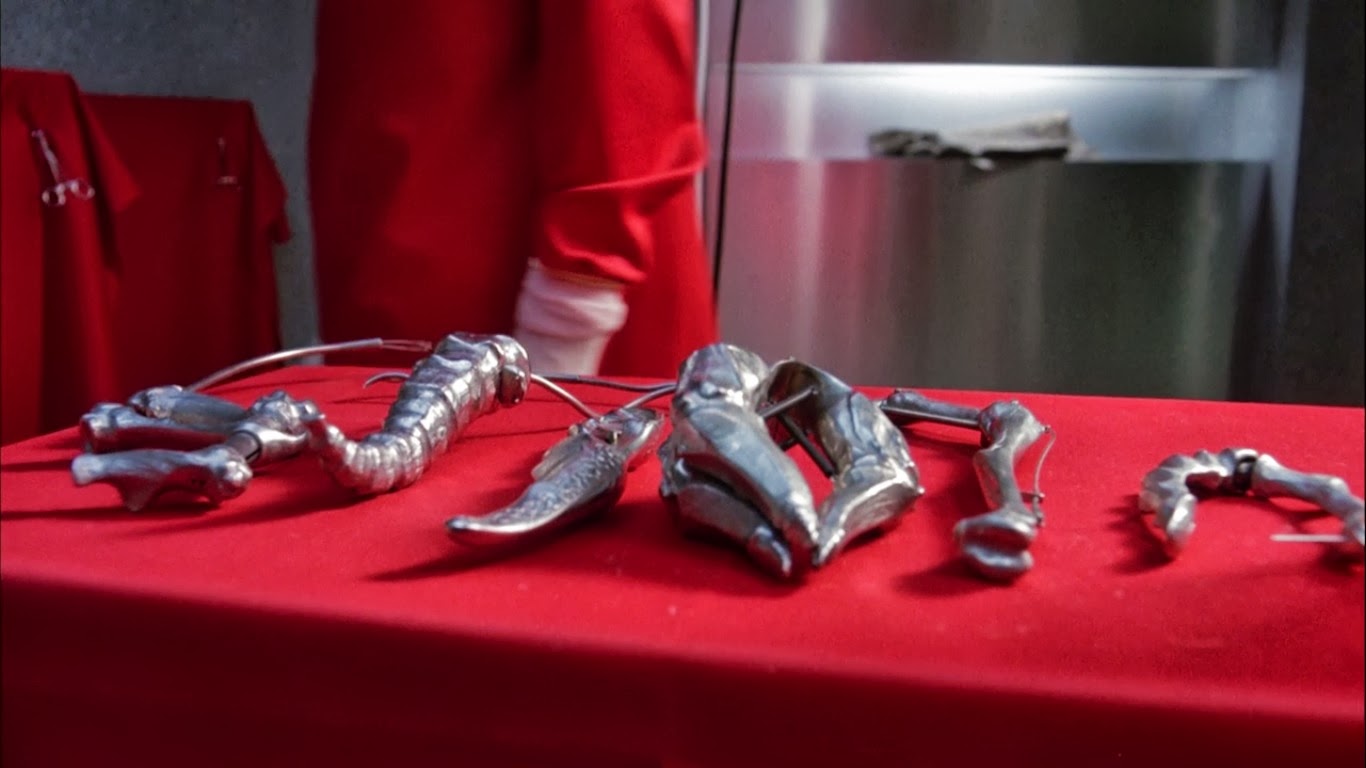
In this way, Pattinson serves as a surrogate new artist in the world, matching the new artists Cronenberg and DeLillo have become after their respective shifts.
His reading and interpreting of the currency market is spoken of as a creative, artistic act, and there is a constant dialogue between it and art, particularly modernist art. (His wife’s poetry, described in the book as brief, particular, and terse, is not described in the movie, but its style is immediately obvious from Gadon’s performance. One scene in which he attempts to buy the Rothko Chapel, however, makes it explicit.)
The anarchist protests which inconvenience him are indistinguishable from performance art (particularly when he is hit with a pie in the face by Mathieu Amalric, “the pastry assassin”).
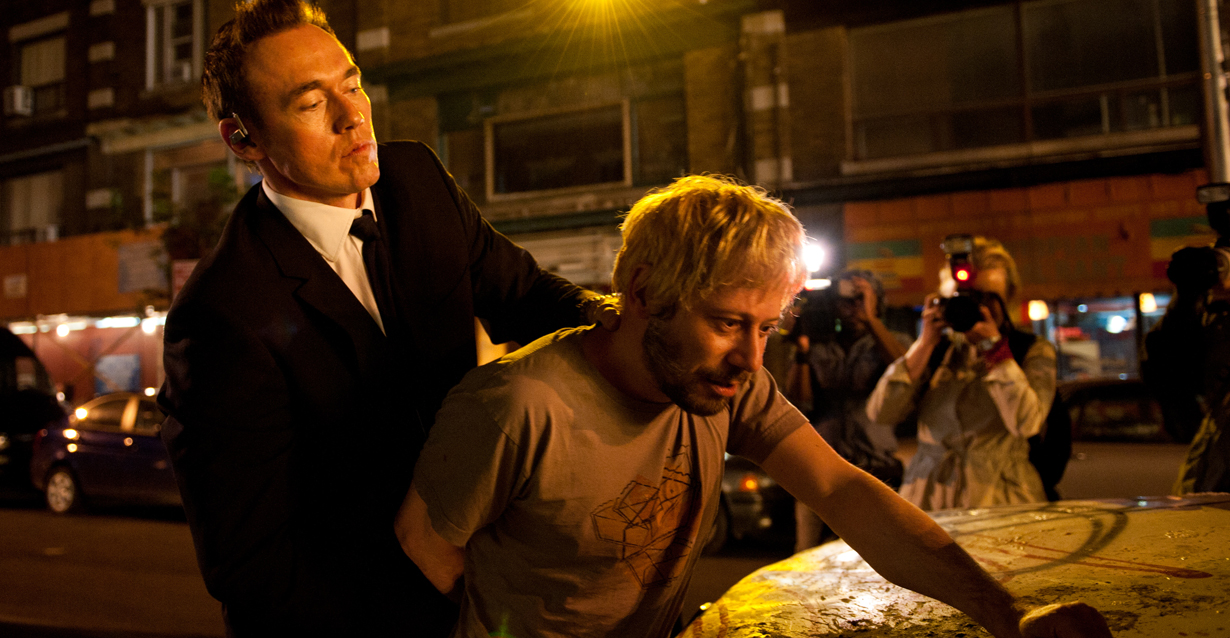 But, in Cosmopolis, Pattinson is increasingly irrelevant to the system at large. He reacts wholly to the system and instructs others to do the same. This Zen-like receptivity to the environment, however, can just as easily be adopted into the system itself. (In this way the film can be seen as a commentary on the efficient markets hypothesis—the idea that, effectively, all information about the system is already part of the system itself.) He is a fleshy bit of excess wasting away.
But, in Cosmopolis, Pattinson is increasingly irrelevant to the system at large. He reacts wholly to the system and instructs others to do the same. This Zen-like receptivity to the environment, however, can just as easily be adopted into the system itself. (In this way the film can be seen as a commentary on the efficient markets hypothesis—the idea that, effectively, all information about the system is already part of the system itself.) He is a fleshy bit of excess wasting away.
And is not the artist doing the same thing? Cronenberg himself has declared film more or less dead (significantly, after his short film At the Suicide of the Last Jew in the World in the Last Cinema in the World, made specifically in response to Hezbollah).
Just like Pynchon, DeLillo seems to have given up any dream of his novels meaningfully commenting on the world. The world may just as well be an efficient market, in that any art that can be made out of the world is already contained within the world.
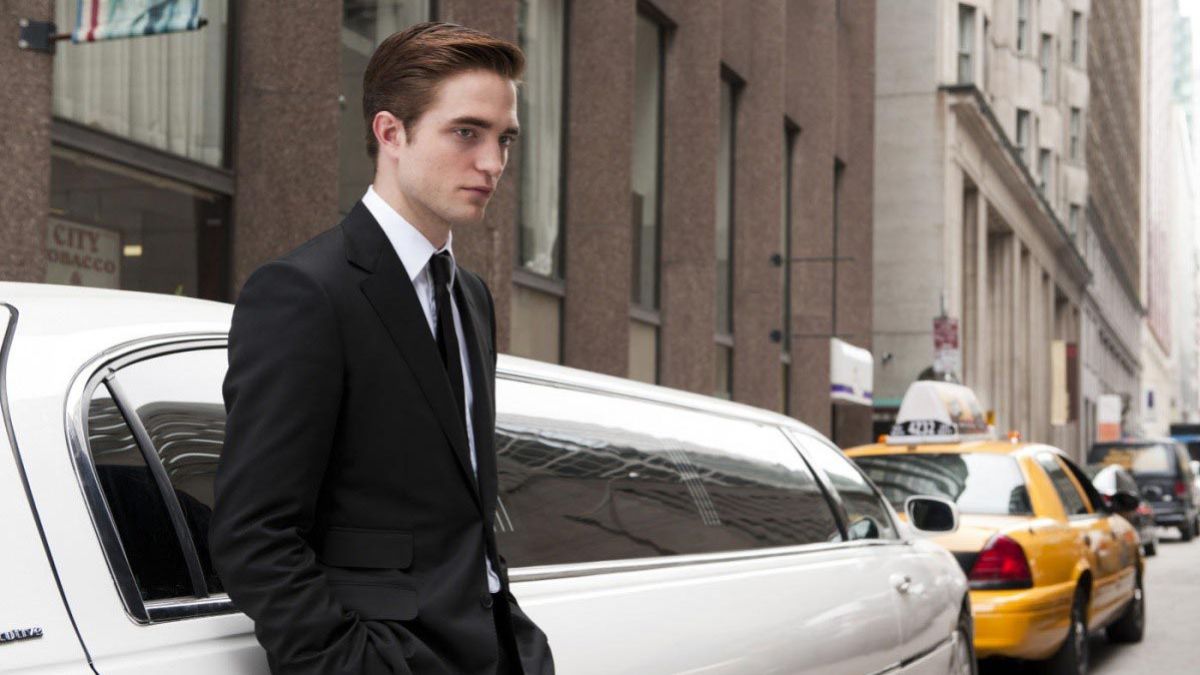
And this is what we are left with in the march through Manhattan.
Cosmopolis the novel is interrupted by the diary of the protagonist’s murderer, but Cosmopolis the film removes these, and cuts away before the fatal shot is fired. That last moment of death is unrepresentable; it is the only thing towards which and around which art can be organized, since it is the last thing that cannot be depicted.
It is a deeply pessimistic approach, but it is the only one possible when one outlives one’s own art’s potential.

